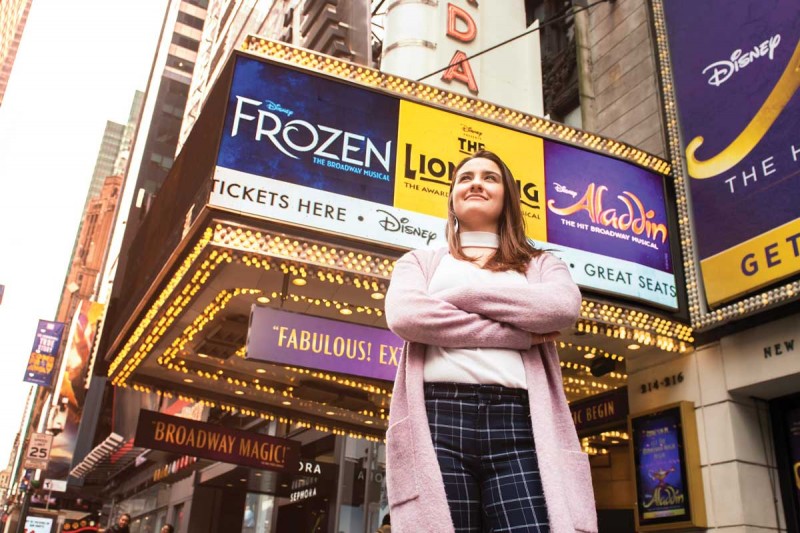A dream is a wish your heart makes
Engineers use outside-the-box thinking to pursue careers in nontraditional, unexpected places

“Any dreams you have — whether they’re from when you were a kid, or they’re about a dream job or dream experiences — are possible, even when they don’t seem that way,” says Lauren Kelemen ’18, who majored in industrial and systems engineering.
Sound like a line from a Disney movie? Maybe that’s because Kelemen, who “grew up as a Disney kid and dreamed of working for Disney since I was little,” does just that.
An associate systems engineer with Disney Theatrical Group in New York City, Kelemen works in Times Square, above the New Amsterdam Theatre where Disney’s Aladdin is playing. She provides information technology support for Disney’s three Broadway productions (Frozen and The Lion King are the other two) and its live touring shows.
“I work closely with the merchandising kiosks that we have at our shows, helping with the hardware and software systems,” Kelemen says. “I also manage projects that involve our vendors, keeping tabs on them to make sure they’re moving along. And my job now includes a training aspect, which I really like,” she says.
Kelemen has been surprised by a number of things since taking her first professional position, including the breadth of her role and the manner in which she uses her engineering skills.
“I’m not doing a time study like you would for ergonomics class or an operations research optimization problem or anything like that. It’s less analytical and more application-based,” she says. “I’m applying engineering knowledge in a way that I didn’t know existed, which is kind of awesome.”
One thing that doesn’t surprise Kelemen is how engineering often takes people somewhere they never expected.
“More often than not, when you talk to engineers years after they graduate, they tend to have changed their main work focus and are not working on the type of projects they thought they would be when they were in school,” she says. “It’s really fascinating to see how that evolves over time. Take me, for example: In a million years I never thought I would end up where I am right now, and I just graduated last year!”
